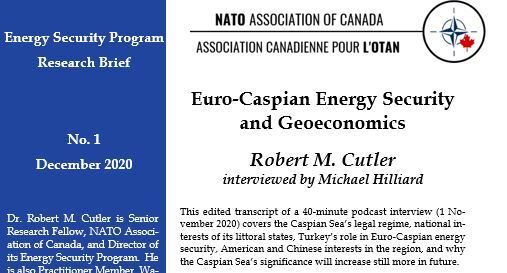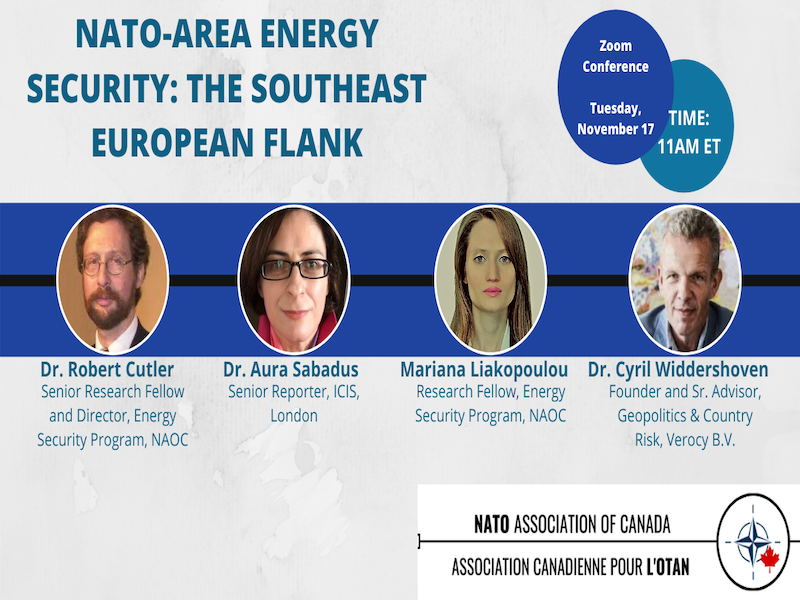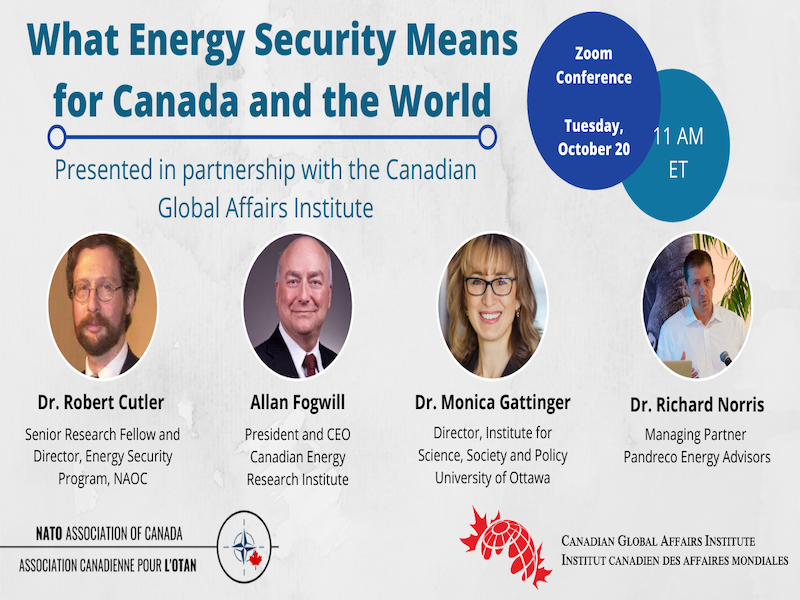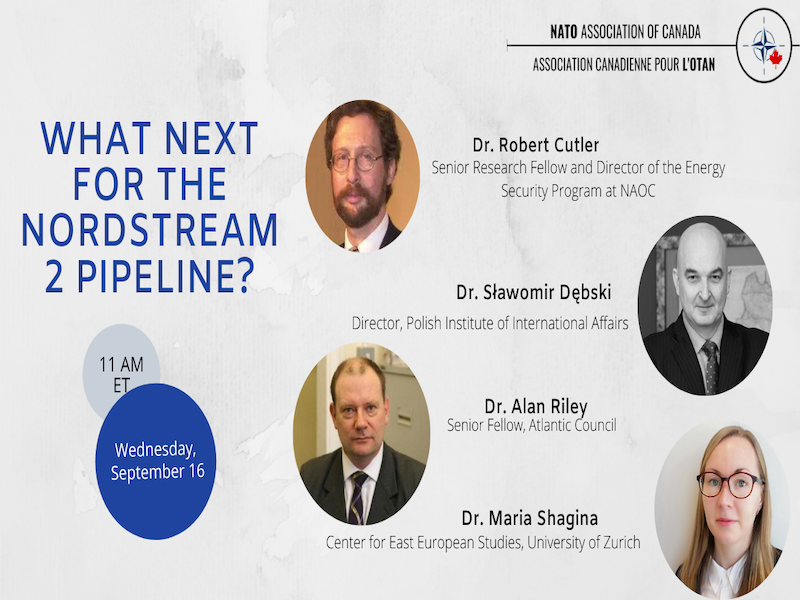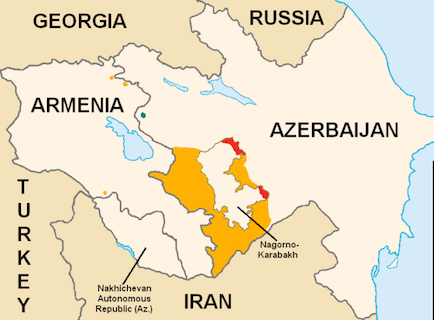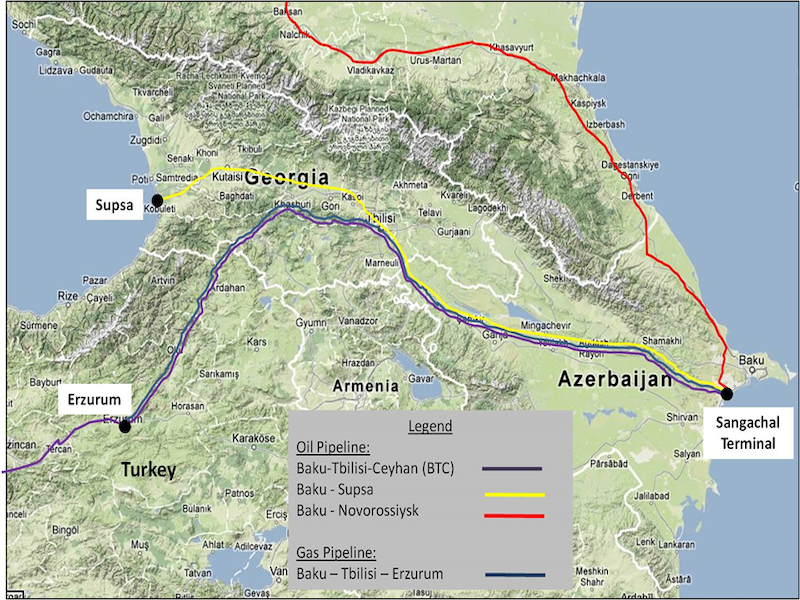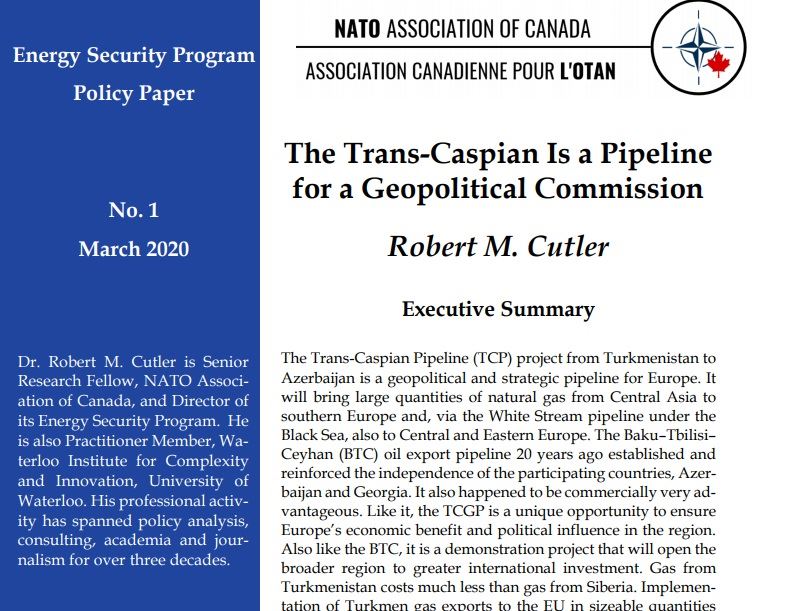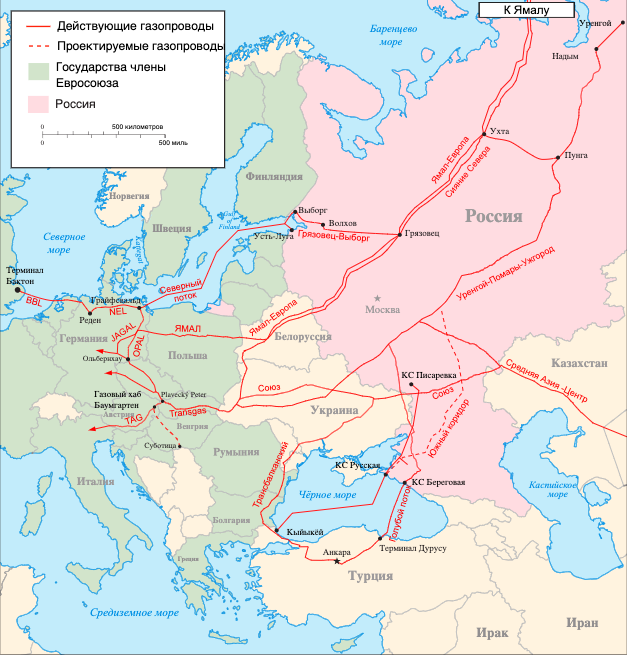This edited transcript of a 40-minute podcast interview (1 November 2020) covers the Caspian Sea’s legal regime, national interests of its littoral states, Turkey’s role in Euro-Caspian energy security, American and Chinese interests in the region, and why the Caspian Sea’s significance will increase still more in future.
Energy Security
The NATO Association of Canada’s Energy Security Program, directed by Senior Research Fellow Dr. Robert M. Cutler, provides analysis and outreach on the full spectrum of energy-security concerns facing NATO members and partners. Core areas include the security of supply and demand, market and policy reliability, and the physical protection of critical energy infrastructure including supply chains for critical raw materials. The Program continuously assesses geopolitical, geo-economic, and military developments that may alter allied energy risks, options, and resilience. It advances public understanding and policy dialogue through webinars, the Energy Security blog, and sequenced series of Research Briefs, Policy Papers, and Research Studies. Contributors—including practitioners, scholars, and emerging analysts—are welcome. Please write to rmc@alum.mit.edu with the subject line “NAOC Energy Security Program” to propose articles, briefs, or events.
NATO-Area Energy Security: The Southeast European Flank
Title: NATO-Area Energy Security: The Southeast European FlankFeatured Speakers: Dr. Robert M. Cutler Senior Research Fellow and Director, Energy Security Program NAOC; Dr. Aura Sabadus Senior Reporter, ICIS London ; Mariana Liakopoulou Research Fellow, Energy Security Program NAOC ; Dr. Cyril Widdershoven Founder and Sr. Advisor Geopolitics and Country Risk Verocy B.V. Series: Energy Security Program Webinar Read More…
What Energy Security Means For Canada and the World
Title: What Energy Security Means For Canada and the WorldFeatured Speakers: Dr. Robert M. Cutler Senior Research Fellow and Director, Energy Security Program NAOC; Allan Fogwill President and CEO Canadian Energy Research Institute; Dr. Monica Gattinger Director Institute for Science, Society and Policy University of Ottawa; Dr. Richard Norris Managing Partner Pandreco Energy Advisors Series: Energy Read More…
What Next for the Nordstream 2 Pipeline?
Title: What’s Next for the Nordstream 2 Pipeline?Featured Speakers: Dr. Robert M. Cutler (Senior Research Fellow and Director of the Energy Security Program at NATO Association of Canada), Dr. Sławomir Dębski (Director, Polish Institute of International Affairs), Dr. Alan Riley (Senior Fellow, Atlantic Council), Dr. Maria Shagina (Centre for EastEuropean Studies, University of Zurich)Series: Energy Read More…
New Dimensions of the Great Caspian Energy Game
Mariana Liakopoulou analyzes shifts in US and the EU energy policies, combined with ongoing market developments, and their implications on the Caspian-region and Central Asian states’ geopolitical significance.
The South Caucasus Conflict and Energy Security
Shahmar Hajiyev analyzes the Nagorno-Karabakh conflict’s effect on the instability in the South Caucasus and its barriers to full regional economic integration.
Where does energy fit in the new military clashes with Armenia?
An analytical commentary by Robert M. Cutler, Director of the Energy Security Program, titled “Where does energy fit in the new military clashes with Armenia?“, was published on 28 July 2020 by the independent News.Az Online News Agency As is well known by now, in mid-July new military hostilities erupted between Azerbaijan and Armenia. They Read More…
Euro-Caspian Energy Relations in the Post-COVID World
On 11 June 2020, Dr. Robert M. Cutler, Director of the Energy Security Program, spoke to a webinar “Energy Issues in the Post-Covid World”, organized by the Center for Analysis of International Relations, Baku, Azerbaijan. This is a transcript of his remarks.
The Trans-Caspian Is a Pipeline for a Geopolitical Commission
The Trans-Caspian Pipeline (TCP) project from Turkmenistan to Azerbaijan is a geopolitical and strategic pipeline for Europe. It will bring large quantities of natural gas from Central Asia to southern Europe and, via the White Stream pipeline under the Black Sea, also […]
U.S. Passes New Geopolitical Energy Legislation
In the rush of activity at the end of last year, in preparation for adjournment, the U.S. Congress approved and President Donald Trump signed legislation including provisions for American foreign economic policy, and energy policy in particular. The one that has got perhaps more attention was the Eastern Mediterranean Security and Energy Partnership Act of Read More…

